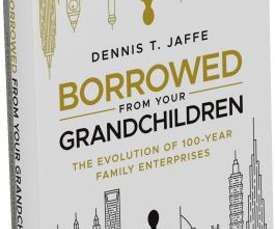During this Crisis, Don’t Expect Business as Usual from the Family Enterprise
Strategy Driven
MARCH 31, 2020
That uncertainty and inability to be in command of business operations makes us anxious. Rather than deal with these issues alone, the legacy owner is better off using this opportunity to bring others in and develop a shared response. Many have had to reduce operations, and some have been forced to let staff go.
















Let's personalize your content